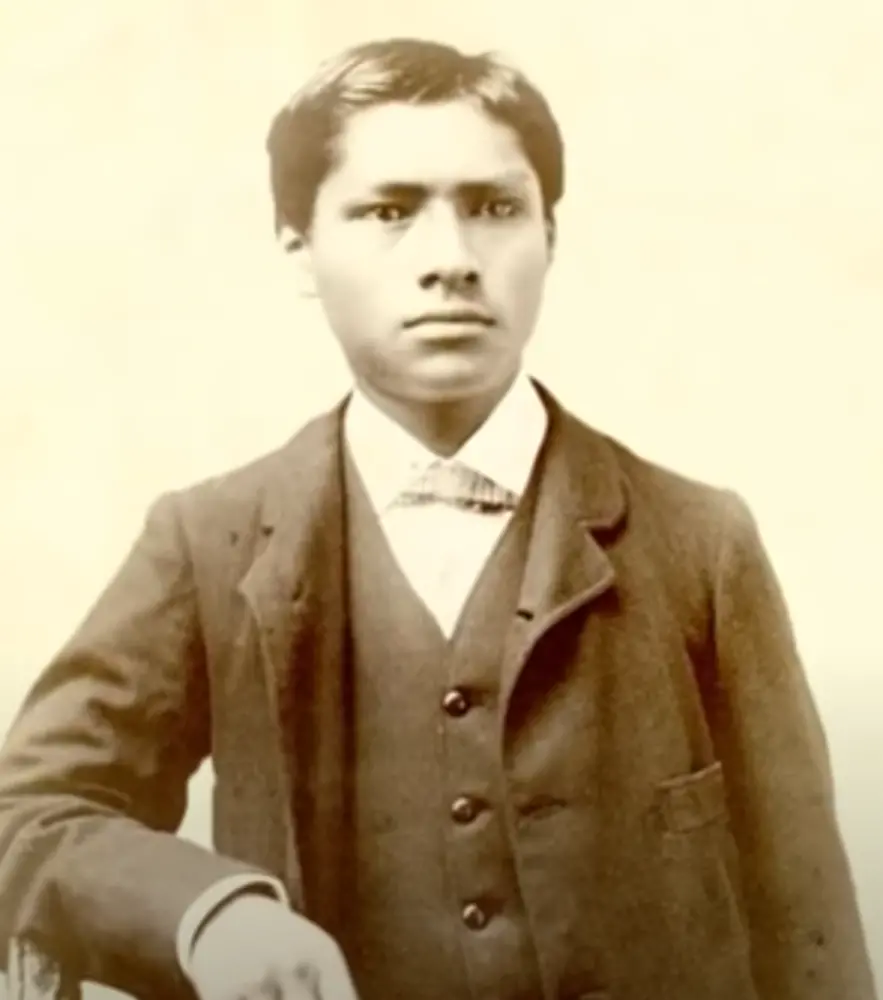
The first Native American graduate of the University of Illinois, Carlos Montezuma overcame many challenges on his way to becoming an Illinois chemistry major and a physician who held a lifelong belief in the importance of education, especially for fellow Native Americans.
A native Yavapai from central Arizona who was named “Wassaja” by his parents, Montezuma was taken from his family as a small boy during a raid on his family’s Yavapai community and spent his early childhood traveling the West with an Italian immigrant photographer, who named him Carlos Montezuma.
At age 11, Montezuma was sent to Urbana, Illinois, to live with a minister’s family, and he flourished academically, developing an interest in science. As a teenager, Montezuma enrolled at the University of Illinois, known as the Illinois Industrial University in the late 1880s.
A chemistry major, Montezuma thrived as a college student and received his highest marks in his chemistry classes. He joined the Adelphic Society where he honed his natural skills as an orator and was elected president of the class of 1884. Montezuma was only 17 years old when he graduated with his bachelor’s degree in chemistry, becoming one of the few Native American college graduates of his day, and the first at the University of Illinois.
Today, a student housing complex on the University of Illinois Urbana-Champaign campus bears his Yavapai birth name – Wassaja Hall. And now, a new scholarship honors him. The Carlos Montezuma Memorial Scholarship in Chemistry has been established by an Illinois chemistry alum to support undergraduate students in chemistry while also promoting diversity and inclusion.
The scholarship was awarded for the first time in the 2023-24 academic year to a chemistry major in the Class of 2024.
Alesandro “Alex” Remolina is a member of the Alpha Chi Sigma professional chemistry fraternity, an undergraduate researcher in the lab of chemistry Prof. Lisa Olshansky, and a member of the campus acapella singing group The Other Guys. He said he has enjoyed his undergraduate research experience, which prepared him well for a recent summer internship and has motivated him to continue developing his research skills for a future in chemistry.
Remolina said he is grateful for this scholarship, which is life changing and impactful.
“Being a recipient of a donor gift means so much to me because I feel like I am a part of a legacy,” Remolina said.
When Montezuma graduated from Illinois in 1884, his legacy was just getting started. Aided financially by scholarships, Montezuma began medical school in Chicago but had to work to cover living expenses. He finished his medical degree in 1889 as one of the first Native Americans to earn a medical degree and began his medical career as a physician in Chicago.
Throughout his life, he believed in the importance of education for Native Americans and was an outspoken leader and writer advocating for educational and other opportunities and for the protection of all Native American land, water, and rights.
The Carlos Montezuma Memorial Scholarship in Chemistry was established in that same spirit of providing educational opportunities for others. The generous individual who made this new scholarship possible has chosen to remain private about the gift but hopes this scholarship will publicly honor the memory and legacy of the university’s first Native American graduate.
In 2016, the University of Illinois held a ceremony dedicating the opening of Wassaja Hall and that event included eight members of the Fort McDowell Yavapai Nation Tribal Council—including several of Wassaja’s descendants.
Bernadine Burnette, president of the tribal council, read a proclamation from the council supporting the decision to name the residence hall after Wassaja. She said Wassaja’s tireless efforts on behalf of Native Americans continue to inspire their tiny Yavapai community in Arizona, as they have named their health clinic after him and have helped create several scholarships in his name.
“Besides the value of education, Wassaja taught us that despite our own small size, we can move mountains,” Burnette said.